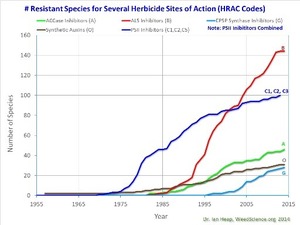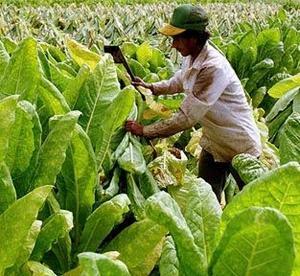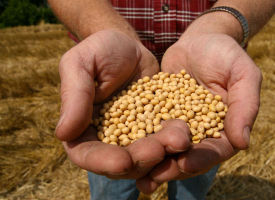Monsanto is always hiding behind something, starving children
(while selling their parents crops that fail all at once),
the Great God Efficiency, or now, medical research.
Will Clarence Thomas recuse himself this time on this
Supreme Court seed patent,
Bowman v Monsanto?
Will Monsanto manufacture enough Fear, Uncertainty, and Doubt (FUD)
to win anyway, or will the other SCOTUS judges rule wisely this time?
Andrew Pollack wrote for the New York Times 13 February 2013,
Farmer’s Supreme Court Challenge Puts Monsanto Patents at Risk,
 Monsanto says that a victory for Mr. Bowman would allow farmers to
essentially save seeds from one year’s crop to plant the next year,
eviscerating patent protection. In Mr. Bowman’s part of Indiana, it
says, a single acre of soybeans can produce enough seeds to plant 26
acres the next year.
Monsanto says that a victory for Mr. Bowman would allow farmers to
essentially save seeds from one year’s crop to plant the next year,
eviscerating patent protection. In Mr. Bowman’s part of Indiana, it
says, a single acre of soybeans can produce enough seeds to plant 26
acres the next year.
Such a ruling would “devastate innovation in
biotechnology,” the company wrote in its brief.
“Investors are unlikely to make such investments if they
cannot prevent purchasers of living organisms containing their
invention from using them to produce unlimited copies.”…
The decision might also apply to live vaccines, cell lines and DNA
used for research or medical treatment, and some types of
nanotechnology.
Yeah, yeah, it could.
But it would be quite easy for SCOTUS to say this ruling is about seeds.
Many organizations have filed briefs in support of Monsanto’s
position — universities worried about incentives for research,
makers of laboratory instruments and some big farmer groups like the
American Soybean Association, which say seed patents have spurred
crop improvements. The Justice Department is also supporting
Monsanto’s argument.
And the American Soybean Association represents big growers
who plant Monsanto seeds.
Too bad they don’t realize they’d make more profits if they
didn’t have to pay for those seeds every year even when
Monsanto jacks up the price
(
43% in 2009), plus pay for
the expensive pesticides that go on them,
and the expensive huge tractor equipment to farm at the scale
Monsanto demands.
Another group that should know better weighs in:
Continue reading →
 With GM crops come herbicides, which breed resistant weeds.
This has happened in about a decade for the worse mutants.
We can reverse the problem by reversing the spraying,
using plowing, cultivation, and crop rotation instead.
With GM crops come herbicides, which breed resistant weeds.
This has happened in about a decade for the worse mutants.
We can reverse the problem by reversing the spraying,
using plowing, cultivation, and crop rotation instead.










